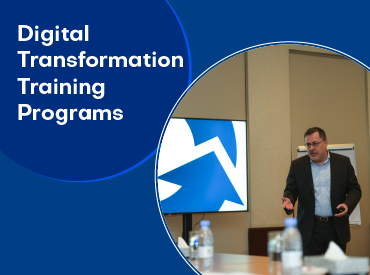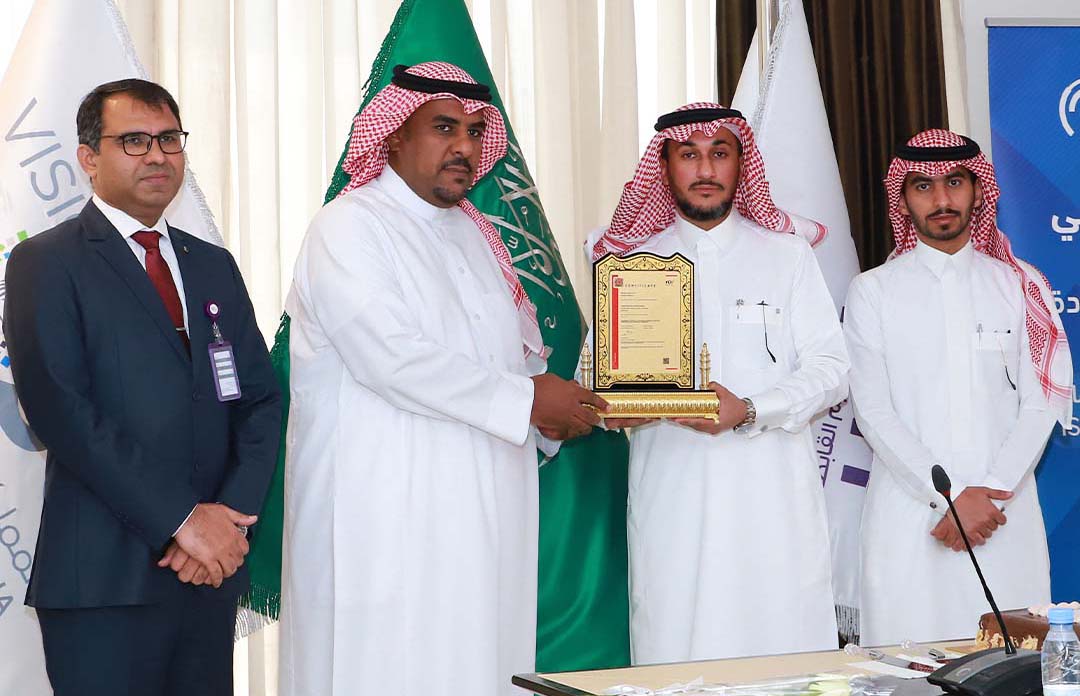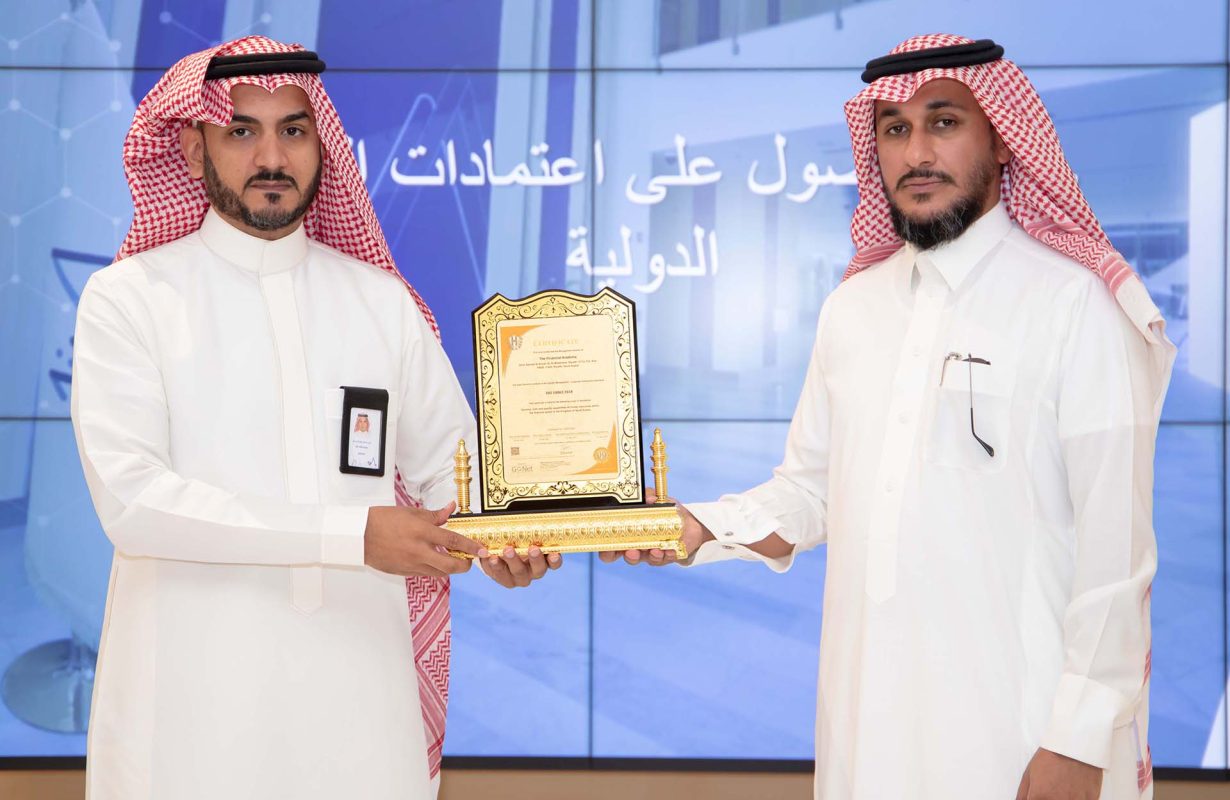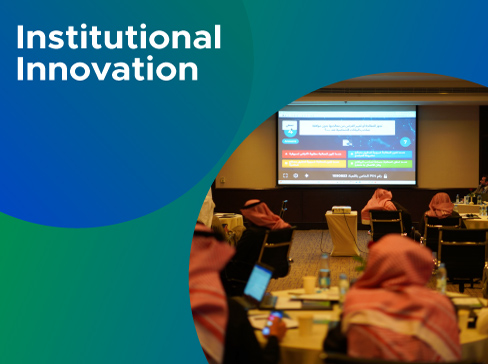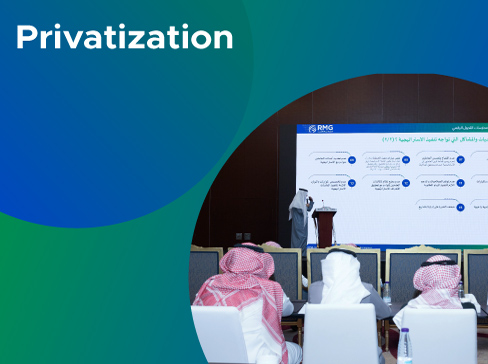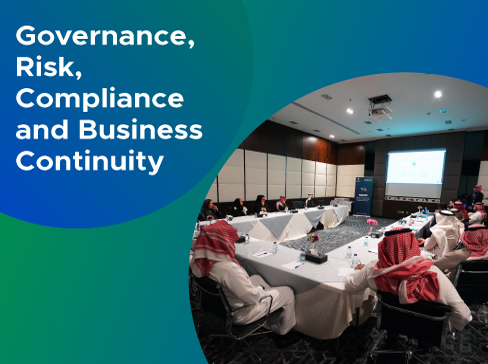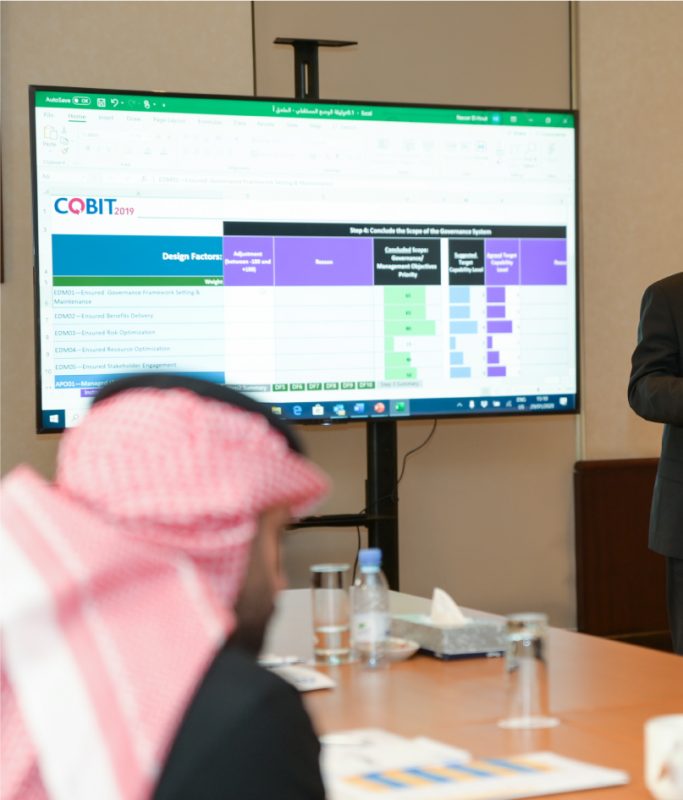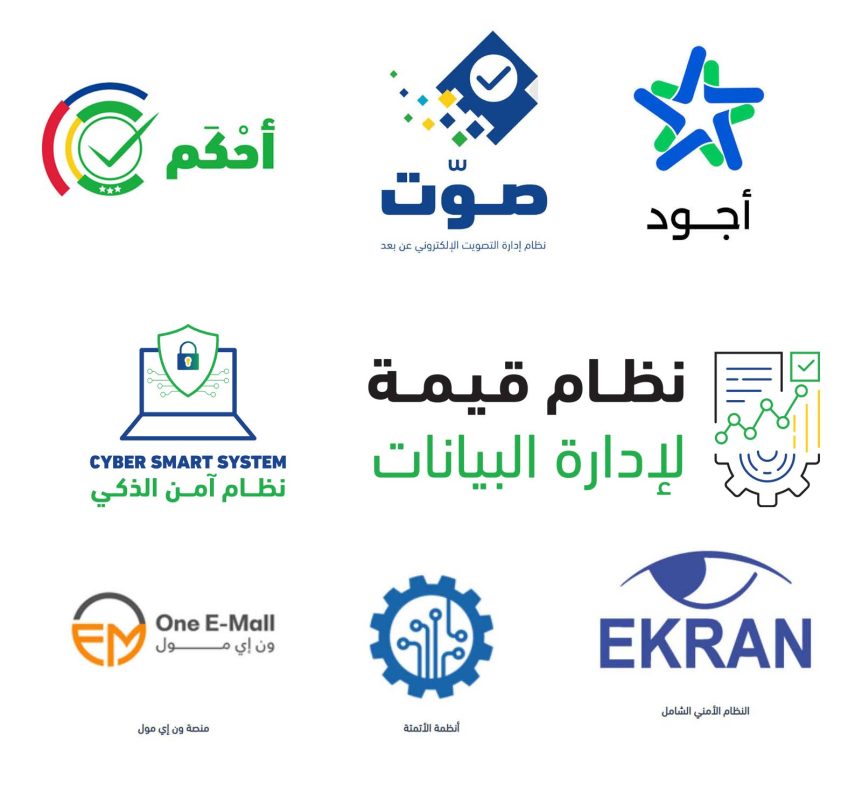When deciding to implement any new processes within the business, workforces is the first challenge that faces is the implementation of this decision, where the presence of a qualified and capable workforce to understand work well, apply it professionally and accurately are the main factor that supporting the success of this decision.
From this aspect and after the decision that the Kingdom made that protecting cyberspace as a part of the work, the National Cybersecurity Authority (NCA) has decided to lunch Saudi Cybersecurity Workforce Framework (SCyWF), which is concerned with:
- Preparing, training, recruiting, and developing workforces in the field of cybersecurity.
- Unifying cybersecurity terminology among the human resource manager and staff to recruit and train the specialized workforce in cybersecurity.
- Linking learning outcomes of education and training programs to knowledge, skills, and abilities required for different job roles in cybersecurity.

What is the importance of implementing Saudi Cybersecurity Workforce Framework (SCyWF)?
First: the process of workforce recruitment and rehabilitation of the cybersecurity field helps to build a powerful cyber army an all Kingdom institution, and therefore it provides protection to those establishments against any potential cyber-attacks which result in the theft of important information and may cause catastrophic damage to the institution.
Second: standardizing cybersecurity terminology and linking all the titles and jobs in cybersecurity of the entities to job roles within SCyWF framework help to:
- Define knowledge, skills, and abilities that are required to different accurate functions of cybersecurity.
- Determine the number of qualified employees for each job role at the level of the region, sector, and national level and confine the additional need of workforce for each role.
The scope of Saudi Cybersecurity Workforce Framework (SCyWF)
The authority recommends each entity in the Kingdom to adapt and use this framework to ensure the alignment with the national guidelines and framework in this field.
It’s acceptable for each entity to make some adjustments and additions to adapt this framework with its functional needs without prejudice of the framework infrastructure, and the entity makes a selection of job roles required by its cybersecurity work, according to the size of the organization, and the nature of its work.
Saudi Cybersecurity Workforce Framework (SCyWF) component
This framework recognizes in ira structure composed of:
5 categories.
12 specialty areas.
40 job roles.
There are defined in a brief description summarizing the work performed in that specific category, specialty area, or job role, each job role is associated with a set of tasks that to be performed within the job role and a list of knowledge, skills, and abilities required to perform those tasks.
Saudi Cybersecurity Workforce Framework (SCyWF) categories
| Category | Description. |
| Cyber security architecture adds research and development (CARD). | Conducts cybersecurity design, architecture, research, and development activities. |
| Leadership and workforce development (LWD). | Leads cybersecurity teams and work. Develops cybersecurity human capital. |
| Governance, Risk, Compliance, and Laws (GRCL). | Develops organizational cybersecurity policies. Governs cybersecurity structures and processes, manages cyber risks, and assures compliance with the organization’s cybersecurity, risk management, and related legal requirements. |
| Protection and Defense (PD) | Identifies, analyzes, monitors mitigates, and manages threats and vulnerabilities to IT systems and networks. Uses defensive measures and multi-source information to report events and respond to incidents |
| Industrial Control Systems and Operational Technologies (ICS/OT). | Conducts cybersecurity tasks for Industrial Control Systems and Operational Technologies (ICS/OT) |
Areas of specialization in the Saudi Cybersecurity Workforce framework (SCyWF)
- Cybersecurity Architecture, Research, and Development (CARD):
- Cybersecurity Architecture (CA): Designs and oversees the development and implementation of cybersecurity systems and/or cybersecurity components.
- Cybersecurity Research and Development (CRD): Conducts cybersecurity research and development.
- Leadership and Workforce Development (LWD):
- Leadership (L): Supervises, manages, and leads cybersecurity teams and work.
- Workforce Development (WD): Applies knowledge and skills of cybersecurity, to develop the skills of the cybersecurity workforce.
- Governance, Risk, Compliance, and Laws (GRCL):
- Governance, Risk, and Compliance (GRC): Governs cybersecurity structures and processes. Manages cyber risks and Insure met their management requirements of all information systems and technologies.
- Laws and Data Protection (LDP): Ensures the organization complies with cybersecurity laws and regulations.
- Protection a d Defence (PD):
- Defense (D): Uses monitoring and analysis tools to identify and analyze events and to detect cybersecurity incidents.
- Protection (P): Uses cybersecurity tools to protect information, systems, and networks.
- Vulnerability Assessment (VA): Tests information technology systems and networks and assesses their threats and vulnerabilities.
- Incident Response (IR): Investigates, analyzes, and responds to cyber incidents.
- Threat Management (TM): Collects and analyzes information about threats, searches for undetected threats, and provides actionable insights to support cybersecurity decision-making.
- Industrial control systems and operational technologies (ICS/OT):
- Industrial control systems and operational technologies (ICS/OT): Perform works related to cybersecurity governance, risk management, and compliance; design and development; protection and defense for operational technology (OT) systems such as industrial control systems (ICS) and Supervisory Control and Data Acquisition (SCADA) systems.
How can Renad AlMajed for information technology company (RMG) help you?
Renad AlMajed company has succeeded being from the earliest companies that could implement the Saudi Cybersecurity Workforce Framework (SCyWF) across a group of experts and consultants and the company provides a group of services which include:
- Make a maturity assessment.
- Implementation of the Saudi Cybersecurity Workforce Frameworks (SCyWF).
- Implementing the alignment mechanism with SCyWF framework through confidence, linkage, processing, and documentation.
- Develop the appropriate policies and procedures with each facility.
- Account insurance services.
provide training and knowledge transportation services.
CONTACT US TODAY AND WE WILL BE HAPPY TO SERVE YOU
Frequently Asked Question
Is a reference guide to prepare, develop, recruit and manage cybersecurity workforces.
The framework provides a unified reference to improve communication and content development for workforce management activities and also helps in linking learning outcomes of education and training programs to knowledge, skills, and abilities that required for different cybersecurity job roles.
- Through flight, reference go to prepare developer crute and manage cyber security workforce
- Unifying the common cybersecurity terminology among human resource managers and stuff to return, recruit and train this specialized workforce in cybersecurity.
- Linking the learning outcomes of education and training programs to knowledge, skills, and abilities that required to the different cybersecurity job roles.
This framework is limited to job roles related to Cybersecurity.
There are other job roles outside the scope of cybersecurity job roles, but it includes some of cybersecurity responsibilities or some KSAs specialized to cybersecurity, and most of these job roles are related to information technology and it is outside the scope of this framework.
Each job role is associated with a set of tasks to be performed within that job role and a list of knowledge, skills, and abilities required to perform those tasks.
- Knowledge: set of data, facts, information, issues, and trends related to a particular subject.
- Skills: The capability to apply knowledge and use tools and methods to carry out a task.
- Ability: the behavior-based competencies that are necessary to perform the work in a particular field.
- Task: a set of activities that need to be completed as a part of a particular job role.
- Restrict entity job roles within SCyWF framework by tasks.
- Linking the job roles that are restricted with the entity’s current jobs.
- Process the private situation, such as linking two of the job roles or more in SCyWF framework with one of the entity’s jobs roles.
- Documenting the alignment mechanism.
- The framework enables a human resource staff to understand cybersecurity tasks requirements and jobs Which facilitate the process of looking for appropriate qualifications and comparing them.
- The framework enables human resources stuff to take advantage from knowledge, skills, and abilities that special for each job role in the framework in the process of creating or updating technical and behavioral competency framework for cybersecurity jobs.
- The framework helps human resources stuff end preparing learning training and development plans based on knowledge skills and abilities required for each job role.




